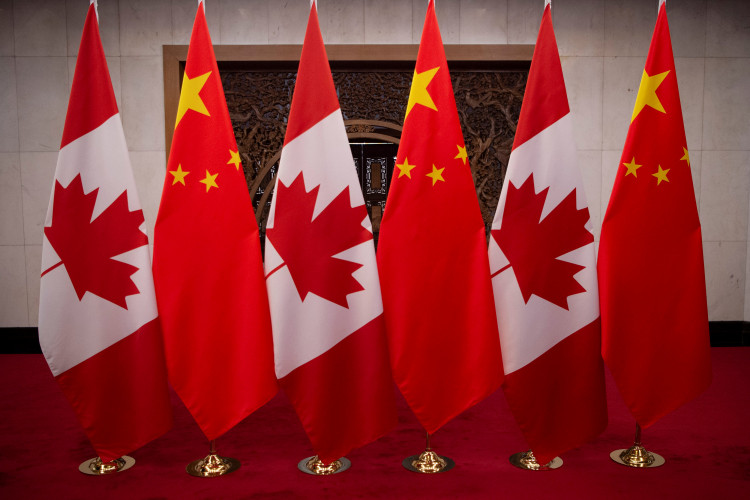China has announced steep new tariffs on Canadian agricultural and food imports, escalating trade tensions between the two countries. The measures, which take effect on March 20, come in response to Ottawa's decision last October to impose duties on Chinese electric vehicles, steel, and aluminum.
The Customs Tariff Commission of the State Council said Saturday that Canadian rapeseed oil, oil cakes, and peas will now face 100% tariffs, while pork and aquatic products will be subject to a 25% tariff. Beijing linked the decision directly to Canada's prior tariffs on Chinese imports, stating that Ottawa's restrictions had "undermined China-Canada economic and trade relations."
The new tariffs mark a further deterioration in economic ties between the two countries, following similar trade disputes in recent years. "Despite China's repeated opposition and dissuasion, Canada has taken unilateral restrictive measures on electric vehicles, steel, aluminum, and other products imported from China without investigation," the commission said in a statement.
The tariffs are the latest development in a broader global trade dispute that has seen rising protectionist measures between China, Canada, the United States, and the European Union. Western governments, including Canada's, have justified their tariffs on Chinese goods by arguing that Beijing provides unfair subsidies to its industries, particularly in electric vehicle manufacturing, distorting global markets.
China's state-run media suggested that the new duties were also meant as a warning to other countries considering additional restrictions on Chinese products under U.S. pressure. According to The New York Times, China Central Television described the move as "a powerful countermeasure to Canada's wrong choice, and a strong warning to some countries that intend to impose additional tariffs on China in exchange for the United States not to impose additional tariffs on them."
The trade battle has echoes of a previous economic standoff between China and Canada. In 2019, Beijing imposed restrictions on Canadian rapeseed oil exports after Canadian authorities, acting on a U.S. request, detained Huawei executive Meng Wanzhou. The restrictions were lifted following Meng's release and a diplomatic agreement that saw two Canadian nationals detained in China also freed.
The Canadian government has yet to respond to China's latest trade measures. Global Affairs Canada, which handles the country's international relations, and the Chinese Embassy in Canada have not issued public comments on the situation.
The dispute also comes amid a broader reevaluation of trade policies across North America. The Biden administration and the European Union have both taken steps to curb China's influence in key industries, including electric vehicle manufacturing and steel production. Ottawa's decision to impose tariffs on Chinese EVs and metals in October mirrored similar actions taken by Washington and Brussels.
Meanwhile, former U.S. President Donald Trump has maintained a hardline stance on trade, recently suggesting that a 25% tariff on Canadian and Mexican imports could be reimposed after a temporary suspension expires in April. Trump has also pledged to introduce new 25% tariffs on products from the European Union "very soon," adding further uncertainty to global trade dynamics.
China has urged Canada to reverse its trade measures. "China urges Canada to immediately correct its wrong practices, lift restrictive measures, and eliminate adverse effects," the Ministry of Commerce said in a separate statement. However, it remains unclear whether Canada will adjust its policies or whether the trade conflict will continue to escalate.






